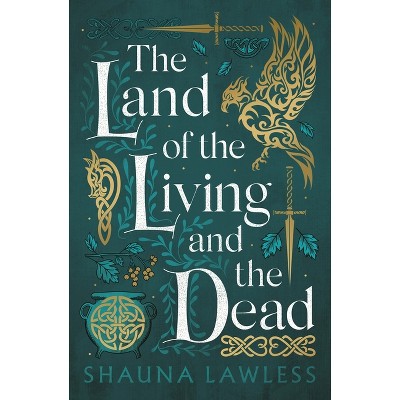About this item
Highlights
- How New Deal economic policies played out in the small town of Arthurdale, West Virginia Today, the U.S. government is again moving to embrace New Deal-like economic policies.
- About the Author: CJ Maloney (New York, ?
- 320 Pages
- History, United States
Description
Book Synopsis
How New Deal economic policies played out in the small town of Arthurdale, West VirginiaToday, the U.S. government is again moving to embrace New Deal-like economic policies. While much has been written about the New Deal from a macro perspective, little has been written about how New Deal programs played out on the ground.
In Back to the Land, author CJ Maloney tells the true story of Arthurdale, West Virginia, a town created as a "pet project" of the Roosevelts. Designed to be (in the words of Eleanor Roosevelt) "a human experiment station", she was to create a "New American" citizen who would embrace a collectivist form of life. This book tells the story of what happened to the people resettled in Arthurdale and how the policies implemented there shaped America as we know it. Arthurdale was the foundation upon which modern America was built.
- Details economic history at the micro level, revealing the true effects of New Deal economic policies on everyday life
- Addresses the pros and cons of federal government economic policies
- Describes how good intentions and grand ideas can result in disastrous consequences, not only in purely materialistic terms but, most important, in respect for the rule of law
Back to the Land is a valuable addition to economic and historical literature.
From the Back Cover
"To read of America before the New Deal is not so much to read of another time, but of another country altogether. Arthurdale was the tipping point--every American born after its birth knows nothing of life in a Republic."
--From the Introduction
"Maloney shines a bright light on the darkest fallacy of the 1930s. To know the New Deal, read this."
--Amity Shlaes, author, The Forgotten Man, and Senior Fellow in Economic History, Council on Foreign Relations
"F. A. Hayek argued in the abstract that the success of socialism came from its utopian vision. C. J. Maloney articulately details one real-world example of how the centrally planned attempt to implement such a vision failed, but the decentralized efforts of common people succeeded in overcoming the obstacles laid in their path."
--Alexander McCobin, President, Students For Liberty
"I always pay attention to C. J. Maloney. He understands economics, the financial system, and our history. And he can write. Read this book."
--Llewellyn H. Rockwell Jr., Chairman, Ludwig von Mises Institute
"In lively and engaging prose, C. J. Maloney skillfully recounts the ill-fated history of the most famous of the New Deal's 'planned communities.' Although Back to the Land reveals the waste, hubris, and tragic clueless-ness of Arthurdale's federal patrons, including none other than Eleanor Roosevelt, Maloney never forgets the human element. He paints a vivid portrait of the ordinary men and women who took part in this 'experiment.'This is a book that will both entertain and inform . . . a timeless and nuanced case study about the unintended consequences of top-down social engineering."
--David Beito, Professor of History, University of Alabama; author of Black Maverick: T. R. M. Howard's Fight for Civil Rights and Economic Power
"Maloney combines extensive research with solid economics to present an astonishing story of FDR's attempt to design a new town from the top down. This government effort to create 'a human experiment station'--in the non-ironic description of Eleanor Roosevelt--predictably yielded a massive waste of tax dollars and a tragic loss of human liberty."
--Robert P. Murphy, author of The Politically Incorrect Guide to the Great Depression and the New DeaL
Review Quotes
"A compelling history of one of the government's most radical, if largely forgotten, domestic programs. . . . Maloney has managed to finely balance the duties of the historian with the role of storyteller. Instead of being bogged down by the (impeccable) research that provides the book with so much valuable detail, he uses this plethora of information to strong effect, highlighting the human stories and the bigger picture impact that Arthurdale had on both the area and the country, so that the reader feels less like he is reading an economic history than a fascinating story with a profound historical lesson. The writing has a smoothness and ease that evades most books of similar historical depth. . . Perhaps even more importantly, the book reveals a great sympathy and understanding for the impoverished people who signed up to live in a government-funded town. . . By sticking to the astonishing historical record, Back To The Land avoids the pitfalls that plague the ideologues who too often direct the national debate. Ultimately, what makes the book so successful is that the story is able to speak for itself."
-- The Brooklyn Rail
"Capably reveals the certain costs of central planning, thus making Back to the Land an essential story for the political class to understand better. As for the many who view government spending as an economic good in its own right, Maloney's tale of the costly creation of Arthurdale, West Virginia (a town built by the federal government as a model for the nation) will surely give them pause. . . Back to the Land is an interesting book, and even better it's an important one for showing up close the bungling ways of government officials. . . skillfully reminds us why we shouldn't entrust our lives or treasure to those who work in government."
-- Real Clear Politics
"Enlightening, well-written, and very timely book. . . . In the year 2006, the mayor of the town of Tal Afar, Iraq, chastised the government that invaded his country -- t
About the Author
CJ Maloney (New York, ?NY) is a vice president and portfolio manager at a Wall Street investment firm, and often provides background analysis and comments for leading finance writers. He writes regularly on economics, history, and politics for Mises.org, LewRockwell.com, Anti-War.com, Liberty magazine, New York Young Republican magazine, Crit Hit, and others (sometimes under the nom de plume Cyd Malone), and speaks before libertarian groups such as the NYC Campaign for Liberty, the Manhattan Libertarian Party, and Ivy League Alliance/Students for Liberty at Columbia University. He graduated from SUNY Old Wesbury with a degree in finance and NYU Stern School with a MBA in finance/accounting. Prior to his position with Neuberger Berman, he was with Lehman Brothers from 2000 until the firm's collapse where he managed $500 million in taxable and tax-free accounts after running the MAP trade desk. Previously, Maloney worked on the NASDAQ trade floor at Prudential Securities from 1998 to 2000. He served four years in the United States Air Force from 1987 to 1991.












